Ophélia, Ophélia, Ophélia…!
I’m thrilled to share a glimpse into the creation of Ophélia, my latest orchestral work, commissioned as part of a Pierre Boulez Homage. I have the honor of premiering the piece in Switzerland this summer !
This blog entry is a good opportunity for me to speak about my creative process. Let’s be honest: writing for orchestra is H-A-R-D.
Form and orchestration is something we all approach differently, and while I won’t be giving orchestration advice here (YouTube has plenty of that), I’d love to walk you through my creative process.
Originally, the piece was titled L’anatomie d’une faille (“The Anatomy of a Breach”). It was inspired by Boulez’s Dérive. I just took the title and explored other meanings of the word.
Dérive (could be translated to drifting away, intentionally or unintentionally) led me to imagine a way in which the orchestra could be divided into two spaces. The intentional drifting (”creation” through shifting slowly) and the unintentional drifting (”the discovery”).
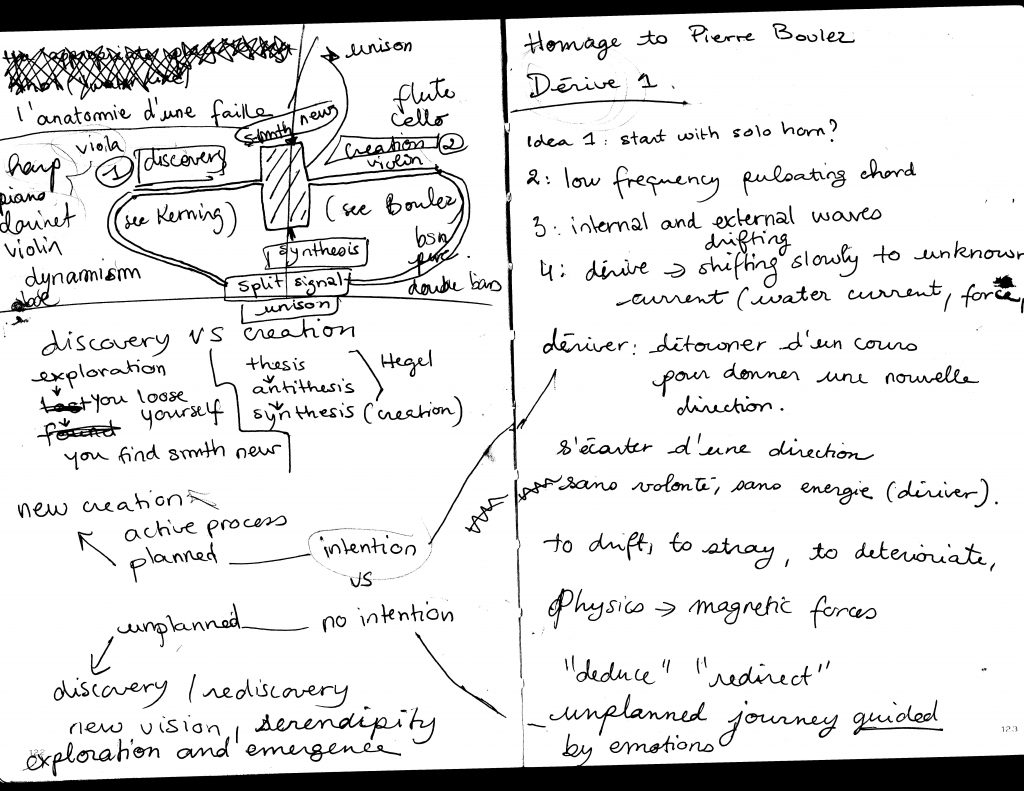
Writing in this fashion allows me to make sense of my thoughts and start creating a structure for the piece. I made a “proper” map later.
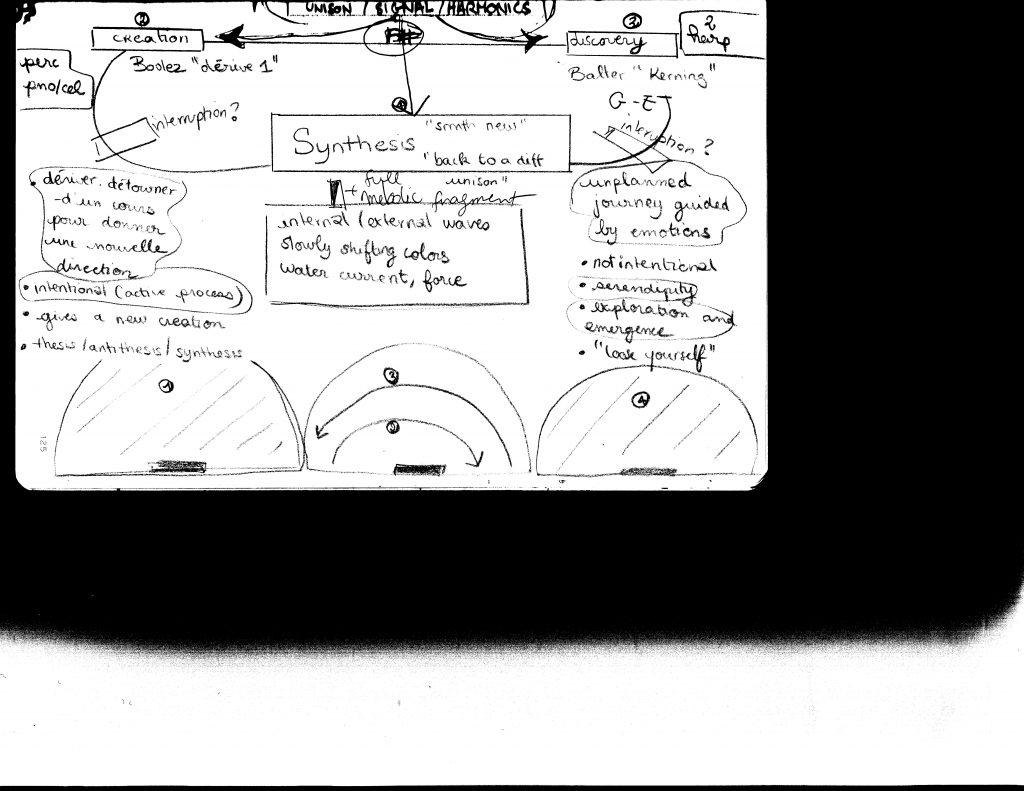
which I ended up discarding by the time I finished the work ! Yes that’s how it goes !
Some more obscure process and a few weeks later, I ended up thinking more in terms of sound, what would “derive” or “deriver” sound like. And then I constructed my microtonal palette of sounds, made up of 1/2 tones, 1/4 tones, 1/3 tones etc.
The piece took about six months to complete. I usually work faster, but this time I allowed myself to slow down.
- I wanted to do a good job and not a hurried job.
- I wanted to make sure I would not be overwhelmed with work when going to the premiere, which is the opposite of what happened when I was a student in the composer’s academy back in 23.
The final stages were all about editing. I printed the score multiple times, marked it up by hand, and questioned every passage. If something didn’t feel intentional or essential, I reworked or removed it. The goal was always to make sure I got exactly what I wanted. If I doubted myself just even a little bit on the length of a passage or it’s utility I would rethink it/rewrite it or delete it altogether.
The biggest lesson? Composition is about clarity, even if what you want is ambiguous or evolving, the final decision is yours. It took me until year three of my DMA to really embody that.
And of course, no composition process is complete without a few moments of total psychosis…
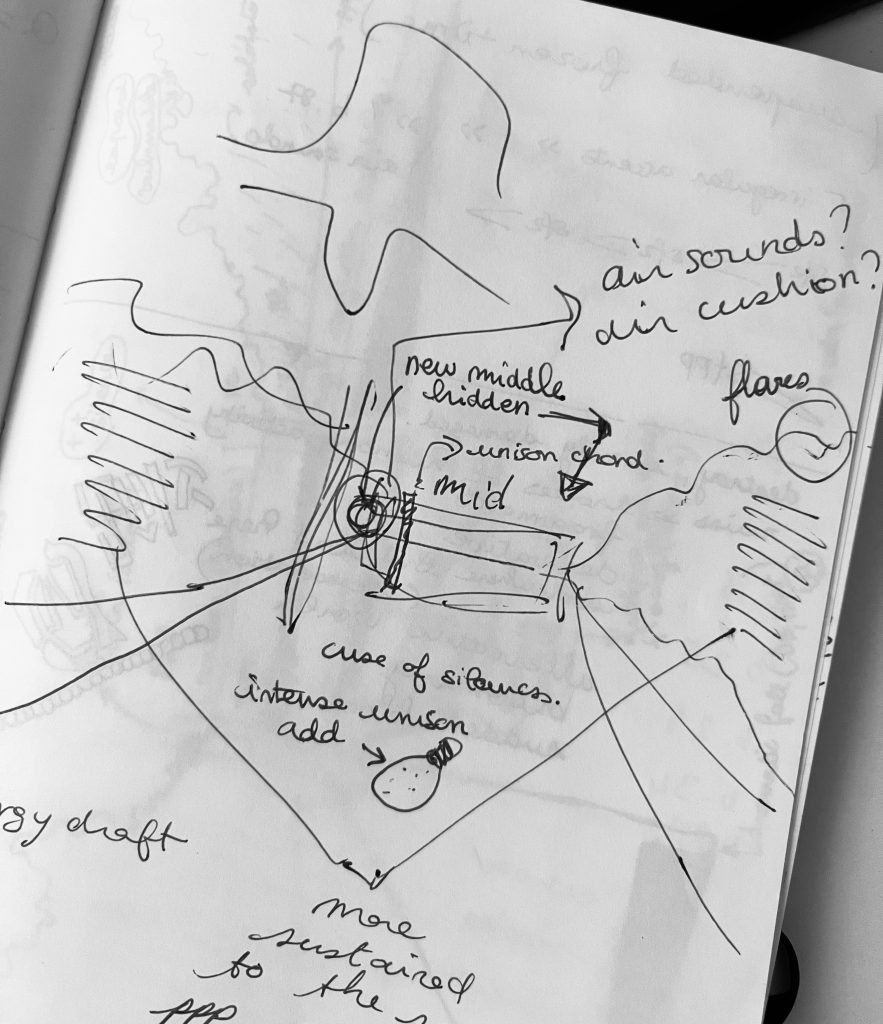
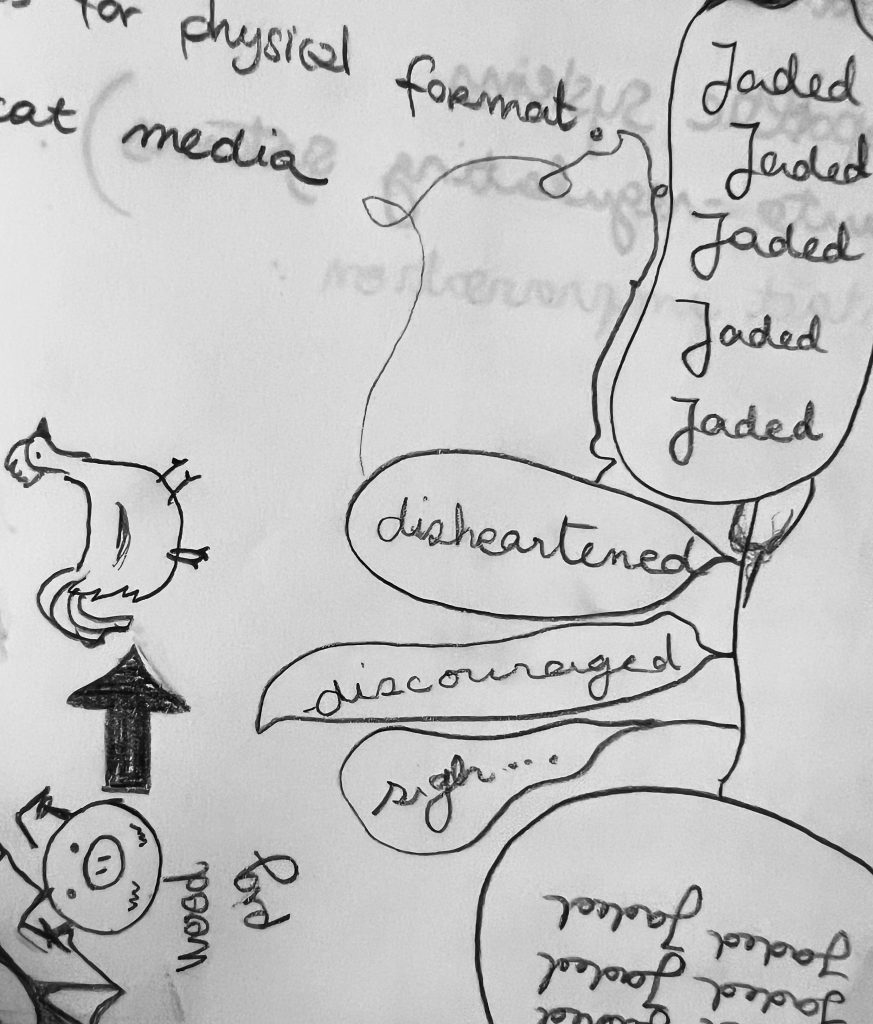
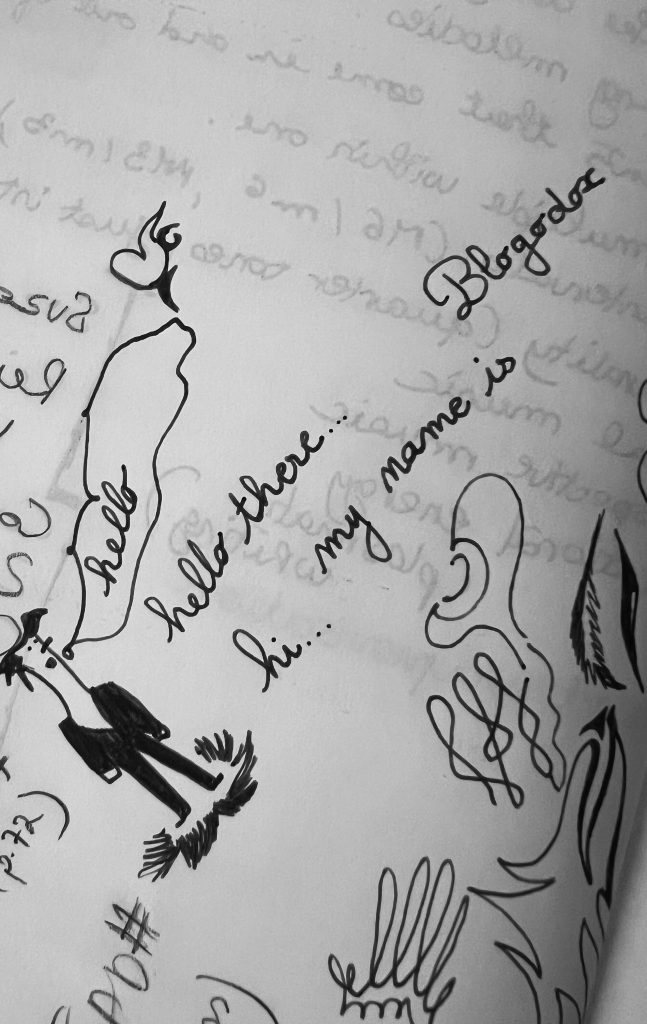
Soooo, why Ophélia ? Because she’s drifting away, mentally and physically !
The premiere of Ophélia will be in Lucerne this August, can’t wait !

Leave a Reply